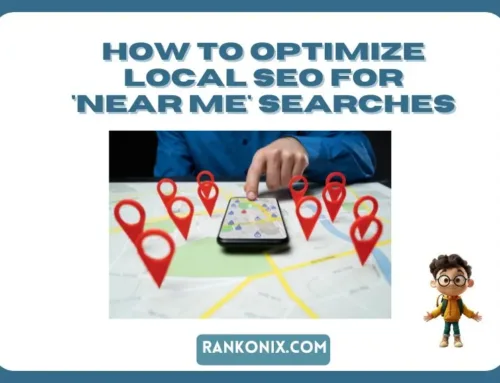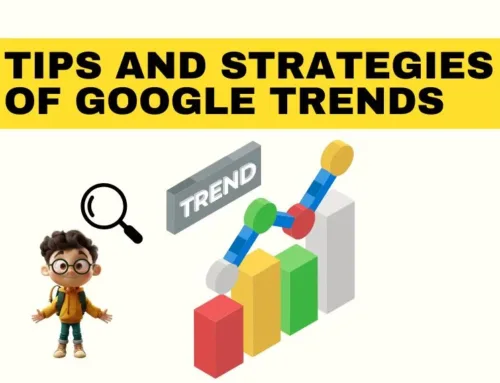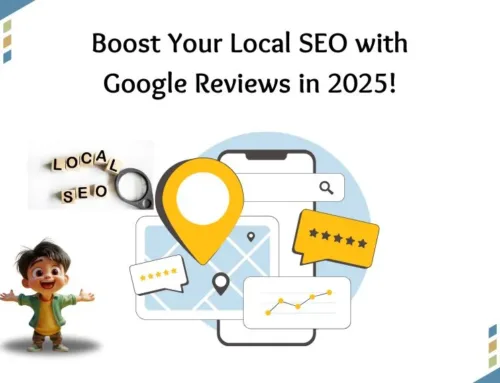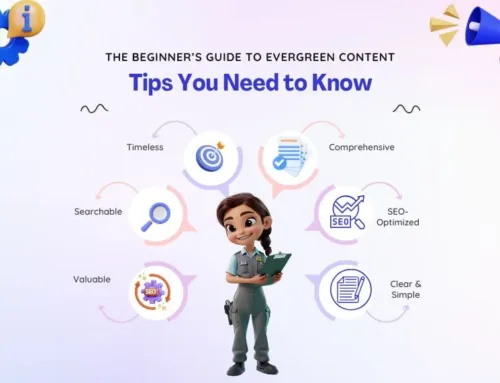Mastering search engine optimization (SEO) can sometimes feel like navigating stormy seas. With constant algorithm changes from major search engines and ever-evolving user behaviors, it’s no wonder people often ask, “Is SEO dead?” The answer is clear: SEO is far from dead—it’s thriving. It’s adapting and advancing to align with modern technology and consumer expectations.
For digital marketers and small business owners, staying informed about these changes is essential to remain competitive in today’s dynamic online ecosystem. In this post, we’ll dive into the evolution of SEO, dispel common myths about its decline, and share forward-thinking strategies for success. With insights from industry leaders at Rankonix, you’ll gain the tools to stay ahead of the curve and maximize your online potential.
Table of Content
Is SEO Dead? Not at All
Rumors of SEO’s decline are greatly exaggerated. While outdated tactics like keyword stuffing, excessive link building, and other manipulative practices are now obsolete, SEO remains a vital component of any successful digital marketing strategy. The core goal—boosting search engine visibility—persists, though the methods have evolved significantly over the years.
Why does SEO matter? Today’s SEO focuses predominantly on user experience and delivering value through high-quality, engaging content. Search engines like Google have refined their algorithms to prioritize websites that truly understand user intent, ensuring that the most relevant, informative, and helpful results appear first in the search rankings. This shift requires businesses to adopt more sophisticated, data-driven strategies, emphasizing genuine connections with their audience rather than simply manipulating algorithms for short-term gains.
To adapt to these changes, consider the following strategies:
- Deeply understand your audience: Conduct thorough market research to know your audience’s demographics, preferences, and behaviors, which is essential for effective SEO.
- Create content that aligns with your audience’s needs: Develop content that is not only informative but also meets the questions and interests of your audience, facilitating engagement and retention.
- Optimize for mobile devices: With a significant increase in mobile searches, ensuring your website is mobile-friendly is crucial for SEO success.
- Improve site speed and usability: Fast-loading pages and seamless navigation enhance user experience and contribute to better search rankings.
- Embrace modern SEO practices: Stay informed about the latest trends and technologies in SEO to boost your search engine rankings effectively.
- Build trust and authority in your industry: Establishing credibility through consistent, high-quality content and genuine interactions will enhance your brand’s reputation.
- Achieve long-term success and customer loyalty: By focusing on sustainable SEO practices, you can secure lasting success and foster a loyal customer base.
In conclusion, SEO is far from dead. It is an ever-evolving field that demands continuous education and adaptation to meet both technological advancements and consumer needs. By embracing change and focusing on meaningful strategies, businesses can not only survive but thrive in the digital landscape.
The Evolution of SEO: From Keywords to User Experience
The Early Days of SEO
In the early days of the internet, SEO was heavily focused on quantity over quality. The prevailing belief was that the more keywords a webpage contained, the better its chances of achieving high rankings on search engine results pages. This led to the widespread use of practices such as keyword stuffing and link farms, where large networks of sites would link to one another to artificially inflate their authority.
However, as search engines like Google became more sophisticated, they began to develop algorithms that could discern genuine value from manipulative tactics. As a result, these outdated strategies lost their effectiveness, and the focus shifted towards genuine user experience. So, do keywords still matter? While they remain an essential part of SEO, their role has evolved, emphasizing relevance and natural usage over sheer quantity.
The Shift Toward User Intent
Today, search engines have advanced significantly in their ability to understand and interpret user intent, even when faced with vague or complex queries. This evolution has led to a fundamental shift in SEO practices, moving away from an exclusive focus on keywords to a more holistic understanding of what users are actually seeking.
However, do keywords still matter? While they remain an important part of SEO, professionals now emphasize the importance of delivering high-quality, relevant content that aligns closely with the needs and expectations of users. Understanding the nuances of user intent has become crucial to SEO success, as it enables businesses to create content that not only meets search engine criteria but also genuinely addresses user queries in a meaningful way.
Delivering Value Through Content
Quality content has become the cornerstone of effective SEO strategies, but do keywords still matter? Businesses are now compelled to create content that not only ranks well in search engine results but also captures the attention and engagement of their target audience. This requires a deep understanding of the audience’s needs, preferences, and pain points. Crafting content that delivers real value goes beyond mere keyword optimization; it involves positioning your website as a trusted resource that offers insightful and actionable information.
While keywords still play a role, their importance lies in how naturally and effectively they align with user intent. By doing so, businesses can foster trust and credibility, encouraging users to return and interact with their content on a regular basis. In this way, the evolution of SEO reflects a broader trend toward prioritizing user experience and delivering genuine value through every piece of content created.

Key Trends Shaping the Future of SEO
Mobile-First Indexing
With mobile searches now surpassing desktop searches, Google’s mobile-first indexing approach prioritizes mobile-friendly websites. This shift means that optimizing your site for smaller screens and touch navigation is crucial to maintain search visibility. Ensuring your website is responsive and visually appealing on mobile devices can significantly impact your SEO performance.
Voice Search Optimization
The rapid growth of smart speakers and virtual assistants is driving the expansion of voice search. To effectively optimize for voice search, it’s important to use natural language and question-based keywords that closely match how people speak their queries. Structuring your content in a way that answers common questions can improve your chances of being featured in voice search results.
AI and Machine Learning in SEO
Artificial intelligence is transforming SEO strategies in unprecedented ways. Search algorithms are increasingly utilizing machine learning to better understand content and user intent. This evolution means that creating intelligent, contextually relevant content is essential for achieving higher search rankings. As these technologies advance, staying ahead of trends will be crucial for SEO success.
E-E-A-T: Experience, Expertise, Authoritativeness, Trustworthiness
Google’s emphasis on E-E-A-T—Experience, Expertise, Authoritativeness, and Trustworthiness—is significantly impacting content ranking. Websites must demonstrate expertise by providing transparent information, citing reliable sources, and creating positive user experiences. Building credibility through these principles can lead to improved search visibility and user trust.
User Experience (UX) Matters
A seamless user experience is key to SEO success. Factors such as fast loading times, easy navigation, and engaging content influence search rankings and user satisfaction. Users should be able to access information effortlessly, without any unnecessary friction. Enhancing UX involves continuous testing and optimization to meet evolving user expectations.
Data-Driven SEO Strategies
Using analytics to guide SEO strategies is more critical than ever. Tools like Google Analytics 4 (GA4) provide in-depth insights into user behavior, helping businesses refine their strategies to meet audience expectations. By analyzing data, companies can better understand which aspects of their SEO efforts are effective and where improvements are needed.

Adapting Your SEO Strategy for Success
Stay Updated on Algorithm Changes
Search engine algorithms frequently change, with Google launching several updates annually. Staying informed about these updates is essential for keeping your strategies relevant. Follow industry blogs, attend webinars, and participate in forums to gain insights and adapt your strategies accordingly. Being proactive about algorithm changes can prevent sudden drops in search rankings.
Utilize AI Tools
AI tools can significantly enhance SEO by automating tasks and providing valuable insights. From content creation to data analysis, AI streamlines processes and boosts outcomes. Leveraging AI can lead to more efficient strategies and help you stay competitive in the ever-evolving SEO landscape.
Focus on Voice Search Optimization
To capitalize on the growing voice search market, tailor your content for conversational queries. Use long-tail keywords and structure your content to directly address common questions. By aligning with natural speech patterns, you can increase the chances of your content being featured in voice search results.
Prioritize High-Quality Content
Content should meet user needs while adhering to E-E-A-T principles. It is crucial to ensure your content is informative, well-researched, and original. Avoid using clickbait tactics that can harm your credibility and focus on providing genuine value to your audience.
Optimize for Mobile
In the era of mobile-first indexing, having a mobile-friendly website is essential. Ensure your site is responsive, fast-loading, and offers a seamless experience across all devices. Regularly test your site’s mobile performance to address any issues that could affect user experience and search visibility.
Leverage Data Analytics
Utilize data as a powerful asset for refining your SEO strategy. Tools like GA4 help track user interactions and adjust your approach based on effective practices. Data-driven decision-making enables you to continuously optimize and improve your SEO efforts.
The Future of SEO

Looking ahead, SEO will increasingly incorporate advanced technologies like AI, voice, and visual search. Personalization will play a larger role, with search engines customizing results to individual preferences. As businesses aim to target specific geographic markets, local SEO will become more vital for reaching local audiences and driving conversions. Understanding why does SEO matter is crucial for businesses looking to stay visible online, as it drives traffic, increases brand awareness, and generates leads. Embracing these trends and adapting to technological advancements will be key to staying competitive in the evolving SEO landscape.
Partner with Rankonix to Stay Ahead in SEO
Navigating the complexities of modern SEO can be a daunting task, but Rankonix is here to guide you every step of the way. Our team of seasoned experts ensures that your business remains competitive in this ever-evolving digital landscape. Why does SEO matter? It’s the key to improving your online visibility, attracting more customers, and staying ahead of competitors. Whether you need help adapting to new industry trends or optimizing your strategy for maximum results, Rankonix is committed to enhancing your online presence. We understand that every business has unique needs, and we tailor our services to meet those requirements. Contact us today to keep your business at the forefront of SEO excellence.
In conclusion, SEO is a dynamic and continuously evolving field. By prioritizing the delivery of value and staying informed about the latest trends and developments, your business can thrive and excel in the digital landscape. Many businesses often ask, “Is SEO Dead?” The answer lies in understanding that while SEO evolves, it remains a critical tool for achieving online success. Being proactive and adaptable is key to maintaining a competitive edge.
Conclusion
The SEO landscape is constantly evolving, pushing businesses to adapt to rapid advancements and shifting trends. With search engine algorithms continuously changing, companies must stay vigilant and update their strategies to keep up. Embracing change and focusing on user-centric approaches are essential for navigating this dynamic field. Success in today’s digital era requires delivering high-quality, relevant content tailored to audience preferences, optimizing for cutting-edge technologies like voice search and AI, and refining strategies based on data analytics and user feedback.
So, is SEO dead? Not at all—it’s evolving. With the right tools and approach, SEO remains a powerful way to boost visibility and build a foundation for lasting online success. Staying proactive and adaptable ensures your business leads in innovation, meeting the demands of a constantly shifting online environment. By doing so, you’ll be prepared to seize new opportunities and tackle challenges as they arise.
FAQs
Q. What is mobile-first indexing and how does it affect my website?
Mobile-first indexing means Google mainly uses the mobile version of your website for indexing and ranking. With mobile searches surpassing desktop, ensuring your site is mobile-friendly is crucial. This requires a responsive design, fast load times, and an intuitive user interface to enhance mobile user experience.
Q. How can I optimize my website for voice search?
To optimize for voice search, integrate natural language and conversational keywords. Voice searches often use longer, question-based phrases. Structuring content with clear, concise answers to common questions and using an FAQ format can boost voice search optimization. Focusing on local SEO and using schema markup can also improve visibility.
Q. Why is E-E-A-T important for my website, and how can I improve it?
E-E-A-T (Experience, Expertise, Authoritativeness, and Trustworthiness) is vital for content ranking. Enhance E-E-A-T by creating accurate, well-researched content from authoritative sources, providing transparent citations, and ensuring a trustworthy site design. Engaging with your audience through testimonials and reviews can boost credibility.
Q. How can data analytics improve my SEO strategy?
Data analytics offer insights into user behavior and trends, enhancing your SEO strategy by showing what works and what doesn’t. Using platforms like Google Analytics 4 (GA4), you can track metrics like page views and bounce rates. This helps refine content, improve engagement, and meet audience needs while enhancing search rankings.










I’m extremely inspired with your writing skills and also with the structure on your blog. Is this a paid subject or did you customize it yourself? Anyway stay up the nice high quality writing, it is uncommon to see a nice weblog like this one these days!